Why do we learn about ancient Greece today? What were people like in ancient Greece and what evidence do we have about their lives?
Look closely at real ancient Greek artefacts, including coffins, pots and some mysterious graffiti. We'll consider different facets of ancient Greek people's lives: from free time, to work, to the agora.
This is available as a museum-educator led, on-site session. Sessions must be booked in advance.
On site session
- scheduled for two hours
- available for up to two classes
- one hour is taught, one hour is self-led, then, if there are two classes, the groups then swap
- self-led guidance will be available
- access to our lunch room, to store belongings and eat lunch
‘I felt the Greek people were there – and not ancient – just people living their normal lives, like us.’ – KS2 pupil
Studio session (optional onsite extra)
- An optional extra available on some Fridays throughout the term
- Sliding scale of charges based on your school type
- one hour session in our studio, supported by our studio assistants
- To develop children’s ability to look closely at objects
- To encourage children to make deductions based on what they observe
- To introduce children to the the concept of evidence, archaeology, and critical reflection on what has survived and what we can learn from it
- To enable children to feel connected to a range of different ancient Greeks as real people
- To encourage children to develop arguments and discuss based on observations
- To reflect carefully on how and why we study ancient Greece
Content of the museum led session:
- Consider why and how the artefacts from ancient Greece came to be in the museum
- Read an object together: what can it tell us about life in ancient Greece?
- Search the galleries for artefacts made from different materials
- Understand how archaeology works, construct an idea of a person using an ancient Greek object
- Compare the pots that would have been sold at the agora (marketplace), their uses and decoration
Content of the (optional) studio session:
- Learn about how sculpture was made in ancient Greece, including relief
- Using soap and clay, try out different methods of sculpture
- Students will make their own sculpture, using ancient Greek imagery, to take back to school
Interested in our studio session? Your class will create some incredible clay pots after learning all about ancient Greek ceramic art. Check out these works created by year 5 from Westfield Primary Academy!
Sessions are available on Fridays.
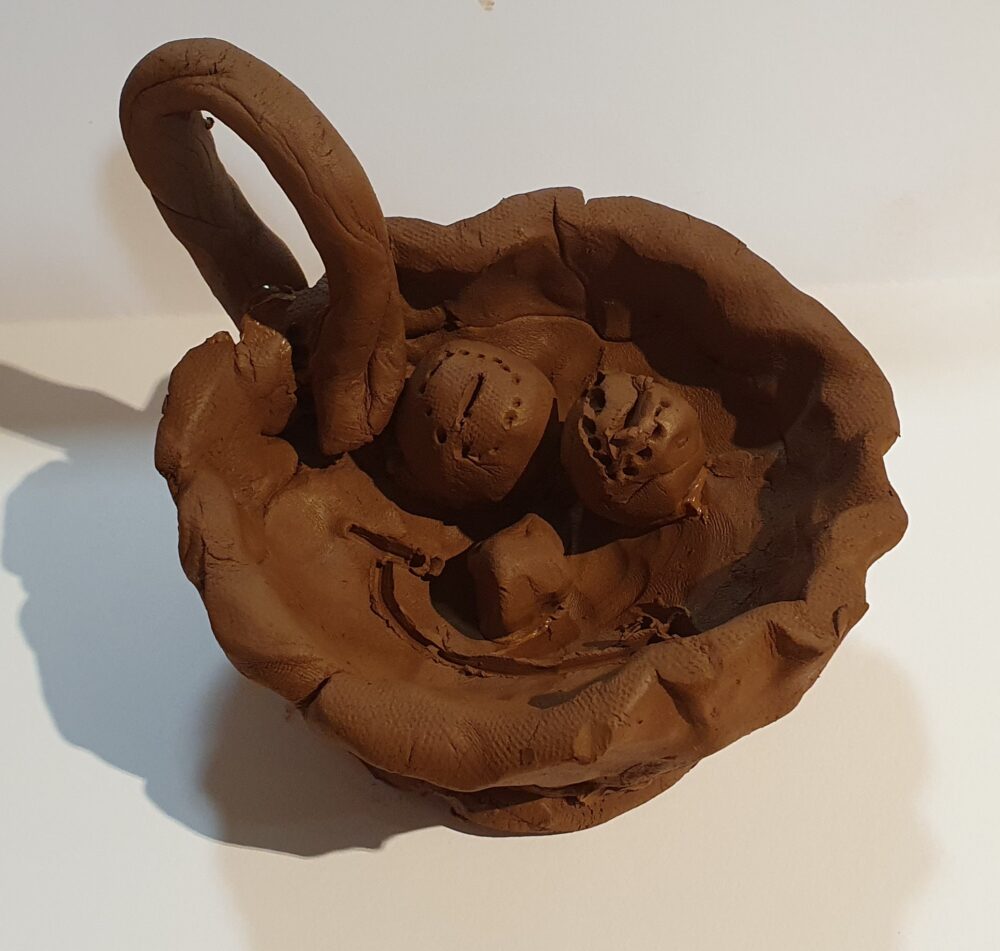
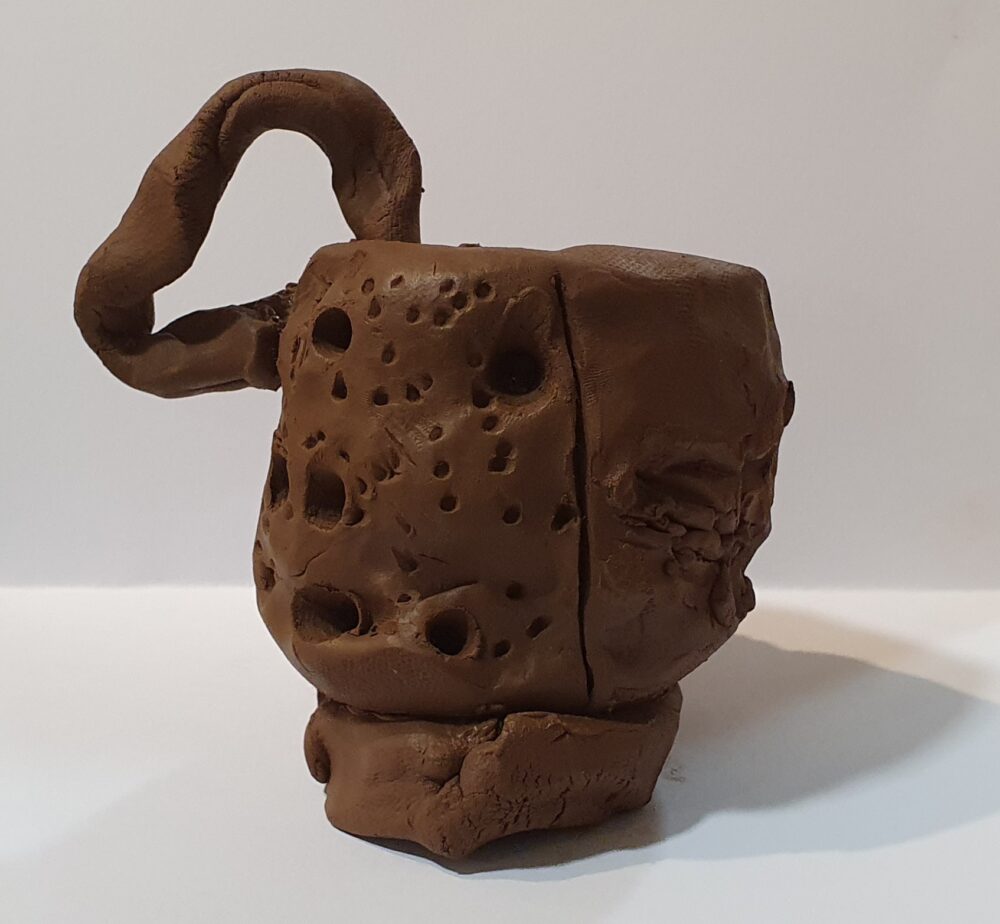
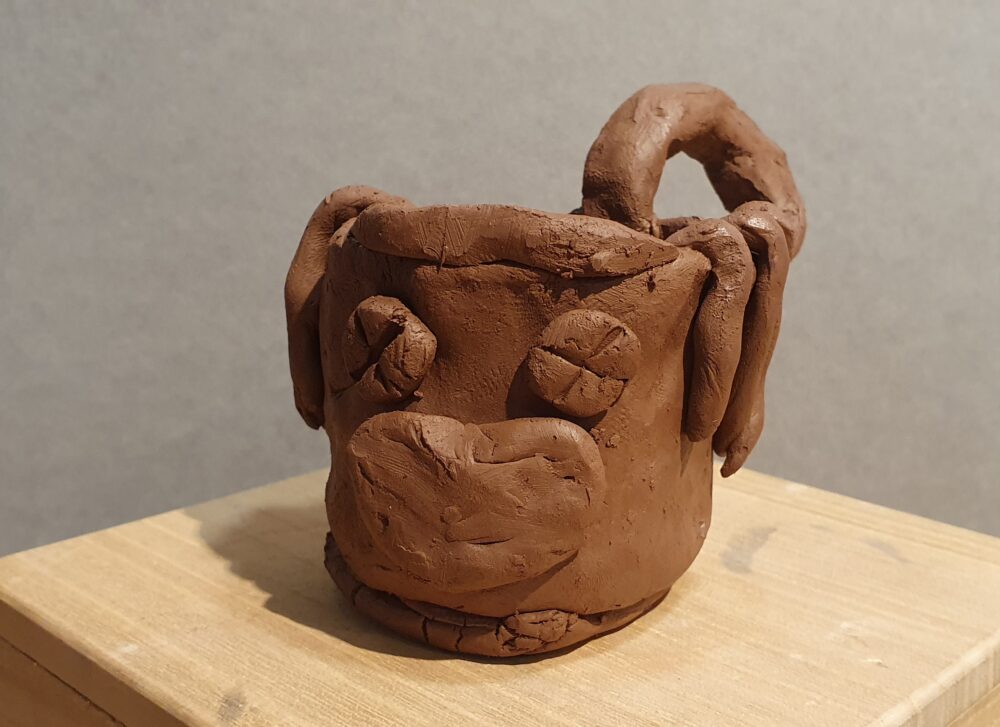
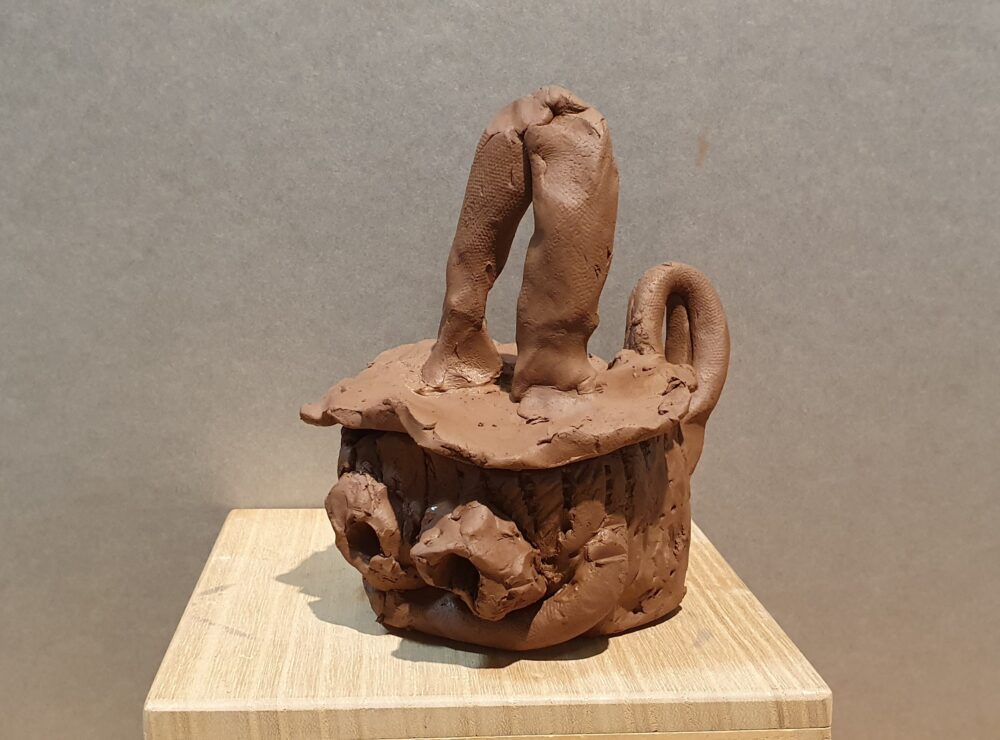
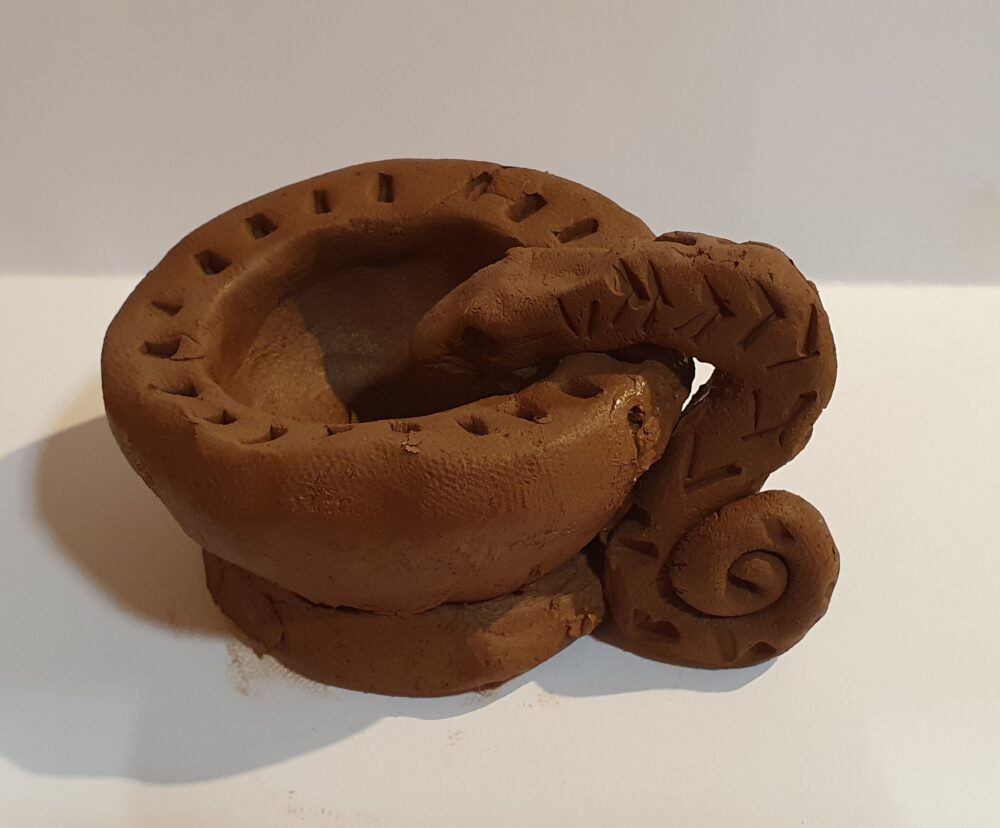
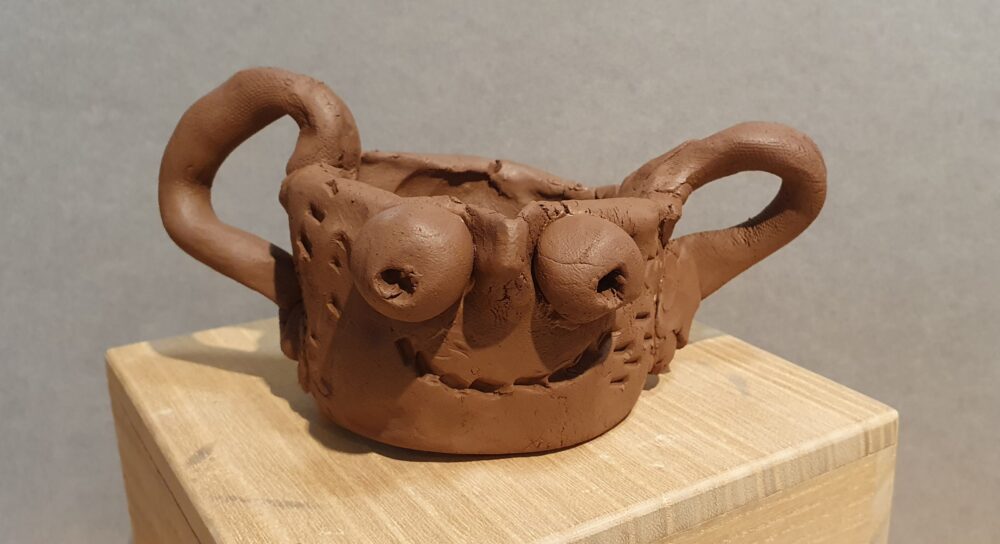
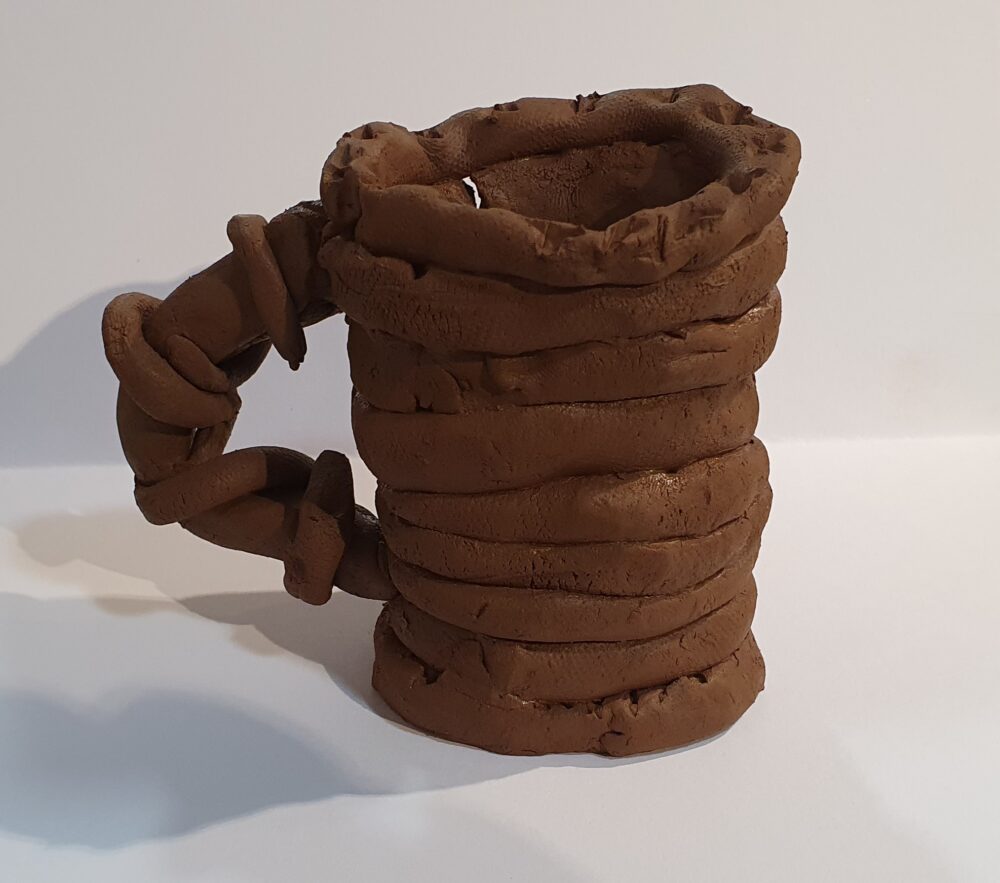
Starter activities (Look Think Do)
Videos and images for your class
Fact Sheets (pdfs with more information relating to our collection)
Altars, libations and sacrifices
DIY: TEACHER NOTES
We have created some suggestions for the part of your visit where you do not have a museum educator. They are intended to be a springboard and are adaptable.
DIY Teacher Notes – Ancient Greeks
INTO ACTION: STUDENT ACTIVITIES
Our activities for students go well with the DIY teacher notes and are designed for students to use in the galleries. Please feel free to adapt them to your pupil’s needs.
We are fully booked for Museum Educator Led visits for Spring 2026, limited self-led is available.
If you’d like to visit in Summer 2026, please complete our visit request form by Monday 23rd February. After this initial request period, we will review all submissions and respond to schools by Friday 6th March. This process ensures that as many schools as possible can experience our collections.
Bookings received after Monday 23rd February are still welcome, but availability may be limited.
Taught sessions will be offered Tuesday, Thursday & Friday.
Self-led visits are available Tuesday – Friday and will be scheduled around taught sessions.
Museum Educator Booking Request Form
We open bookings for each school term at the preceding half term. If you are interested in Autumn 2026 bookings, or teacher events, sign up to our teacher mailing list.
If you have any questions email education@fitzmuseum.cam.ac.uk.
Access and special educational needs
We are happy to discuss the content of the session and any other details that may be useful in helping your students make the most of their visit.
We have a bag of sensory and fidget toys available to borrow for sessions.
We can also print raised line drawings related to a session with a week or more’s notice, and may be able to arrange for a second museum teacher to attend the session who is trained in audio description.
We find it helpful to receive all feedback, but are especially keen to improve access to our sessions and offer. Please let us know if we can improve yours, or others’ sessions.